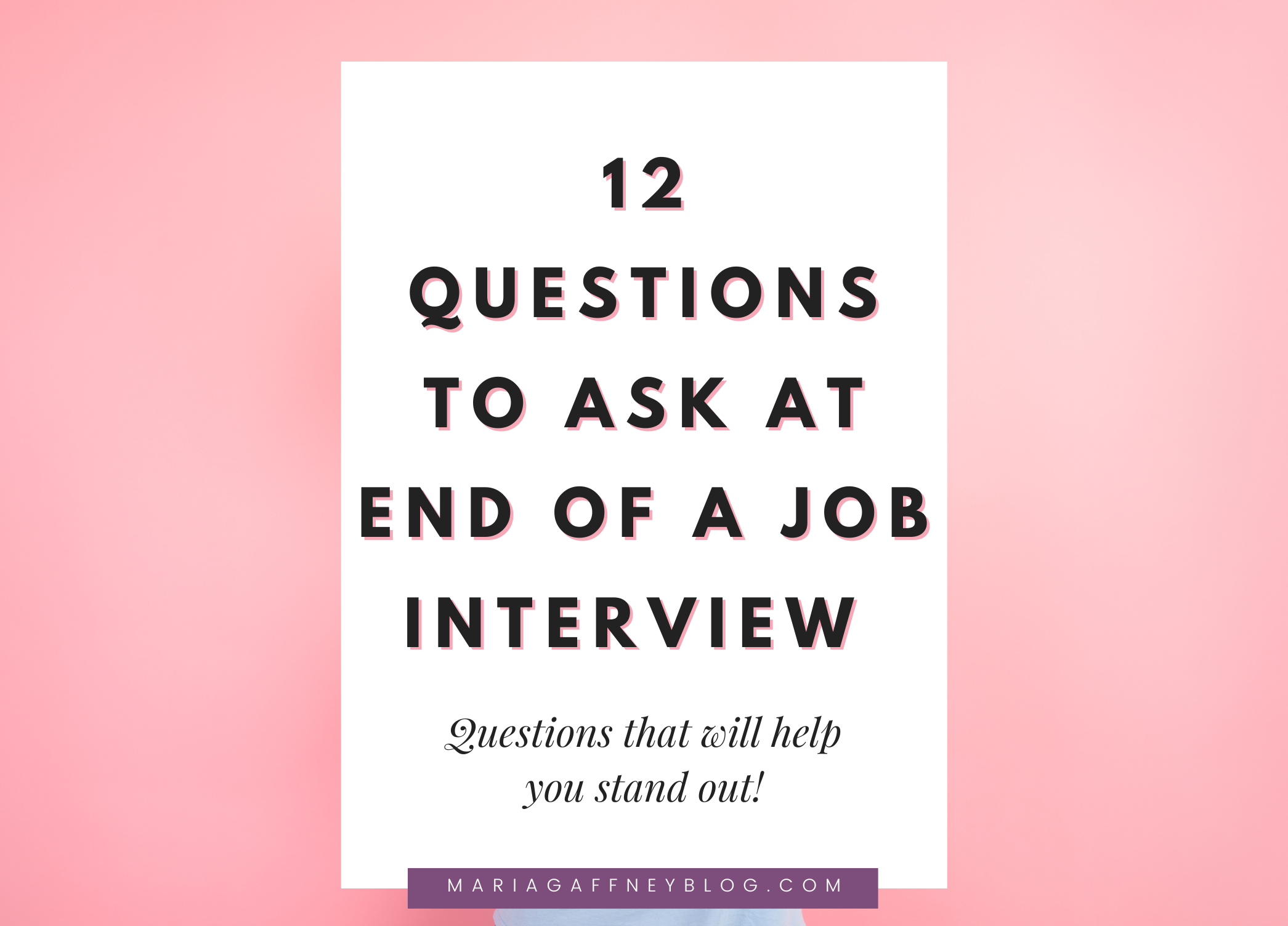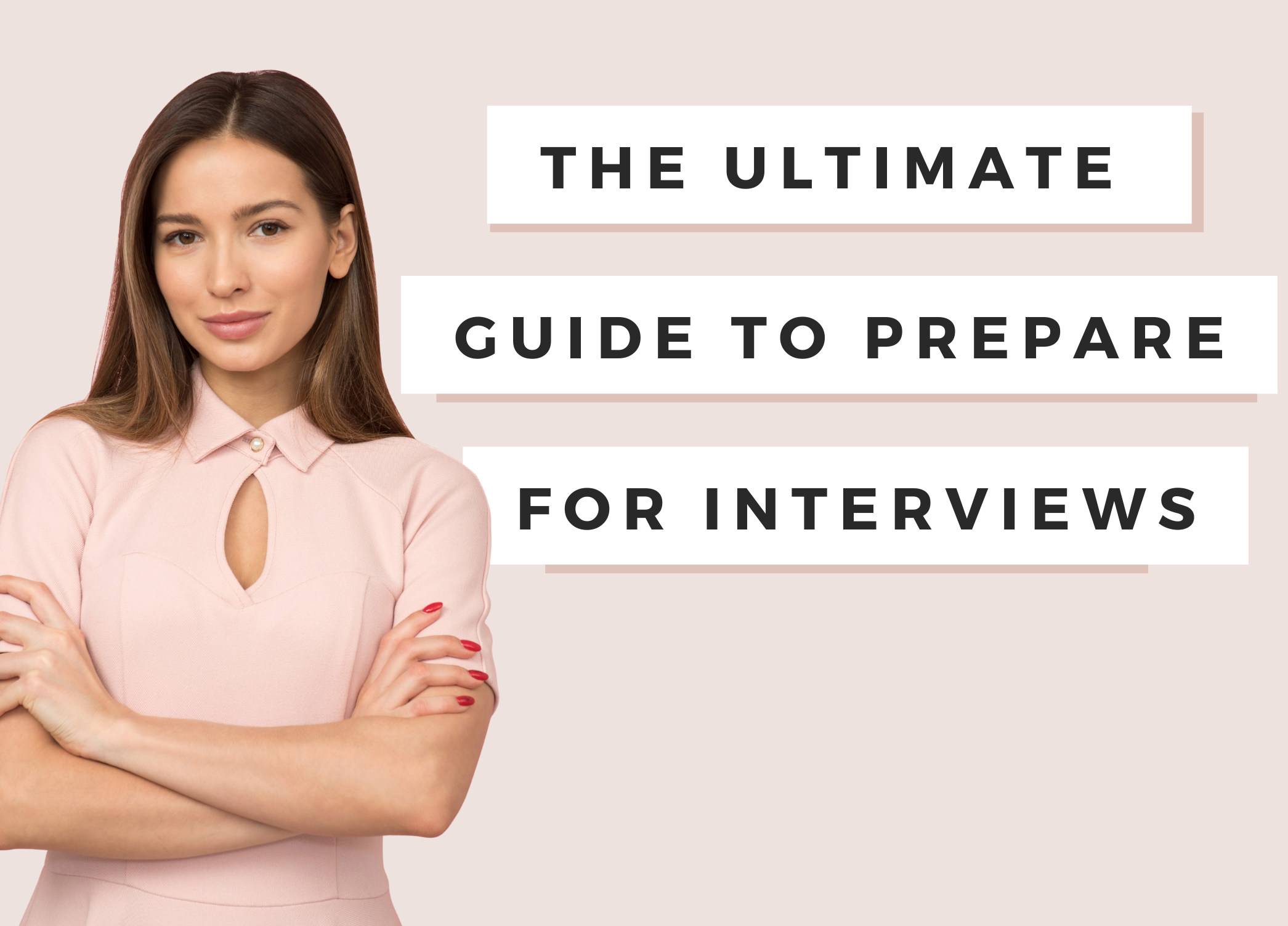
Congrats! You have an interview lined up or are looking to apply to a new job. That’s great news. Now it’s time to figure out what to ask at the end of your interview to show your interest in the company and to stand out from the crowd.
Well, you have come to the right place.
Listed below are 12 questions you can choose from to ask at the end of your interview. I recommend asking 2-3 questions in total. That way you can obtain more information about the position, the company, and request feedback too. Let’s get started.
1. Can you tell me more about the day-to-day responsibilities?
If you’re still not clear what a day-in-the-life would look like in this job position, it’s a great time to ask. The employer should be able to paint a clear picture of what you can expect. This includes your work hours, travel requirements, recurring meetings, and daily duties. This is a great opportunity to see if you like the structure of the position before deciding if you want to move forward with the company.
2. What is your favorite thing about working at company x?
Asking this question is a great way to gauge if the interviewer is enthusiastic about working for company X. If they have to think long and hard to answer this question, then this organization may not be a great fit for you. But, if they can come up with a few answers quickly that sound like benefits you would also enjoy, this organization may be a great match for you.
3. What type of personal and professional development opportunities are there?
Organizations that encourage personal and professional development can make a big difference in your career. Some organizations offer free memberships to online academy’s, pay for in-person bootcamp classes, reimburse certification costs, or pay for your travel to industry conferences. These types of opportunities can help you network in your field, meet like-minded professionals, and fast-track your next promotion. Their answer to this question may determine if you want to invest your time and energy into this company.
4. What type of healthcare do you offer?
If you’re going to sign up for healthcare through your employer this may be a good question for you to ask, especially if you’re interviewing with a small organization. Small organizations don’t always offer healthcare. Your hiring manager may not have all the details of which plans you can choose from, but they should be able to tell you if they offer medical, dental and vision plans.
5. Will this job require travel, and if so, how often?
If you’re someone who loves travel this may be an important question to bring up during your interview. On the contrary, if you do not want to travel for work or if this is advertised as a remote position, you may want to ask if there is some occasional travel required to the office or to corporate events.
6. Can you tell me about the type of projects in progress for this role?
You may want to inquire into what kind of projects are currently being worked by the team to learn about upcoming milestones, key deliverables, and the metrics used to track project progress. Their answer should also tell you more about your day-to-day activities and how your role will fit into the larger picture.
7. How long is the training for this position and what does it look like?
Most jobs will start you off with training. By asking this question, you will get to know the training syllabus, the timeframe to complete it, and if you need to pass any tests. All employers have different employee trainings so this is good information, so you know what to expect. Some employers have 2–3-day trainings, while others have 2-4 week trainings. Similarly, some organizations conduct trainings on-site.
8. What does the performance evaluation process look like?
Every employer should have evaluation metrics and conduct performance reviews at least annually. If you’re interviewing with the manager you’ll be working with directly, this is a great question to ask. They should be able to tell you all about the metrics they use to evaluate their team, what matters most to them, and how they differentiate ‘rock stars’ from average performers. This information will be great to keep top of mind as you get started in the new position.
9. Can you tell me more about the retirement benefits?
We all want to retire with a nest egg that’s large enough for us to feel comfortable, live worry free and enjoy our retirement years. That’s why it’s good to know if this company has retirement options before accepting the position. Most organizations offer 401k packages and may offer other types of accounts too. If they don’t offer these types of accounts yet, you can invest into other retirement accounts on your own, such as a Roth IRA. So, while this is good information to have, their answer may not be make-or-break.
10. What type of growth opportunities are there?
Most of us want to work at an organization that will help us grow. Whether that’s through a promotion, networking opportunities, or educational opportunities, organizations that value growth are the best ones to work for. Asking this question may help you deduce if you can see yourself working there for a long time and if their values align with your own.
11. What are the next steps in the interview process?
This question is a great way to understand what to expect in the days and weeks ahead. By asking this, you’ll get more information on their follow up timeline and if you need to go through anymore interviews before the final decision is made. This also creates an opportunity for you to follow up with them if you don’t hear back within their expected time frame.
12. Can you provide me with feedback on how I can improve moving forward?
I recommend closing every interview with this question. It’s a great way to gauge how the employer feels the interview went, and how you can improve moving forward. Most times, they will offer some form of constructive criticism or may tell you that you seemed very prepared. Either way, it’s an excellent way to get feedback and to get better next time. Once they conclude their response, thank them for their feedback and their time.
In Conclusion
As you can see, there are many types of questions you can ask at the end of your interview. Choose what works best for you and your situation. Whether that’s probing questions about the job responsibilities, inquiring about the company benefits, or soliciting feedback – these are all great options.
Don’t forget to congratulate yourself for a job well done after you conclude the interview! You put in hard work and research, so you deserve to recognize that about yourself.
One final tip before you go. I recommend following up via email with the interviewer in the coming days so you can stay on their radar and remind them that you’re thankful for their time and consideration.
If you found this article helpful, leave a comment or share this with a friend.
Related content to Questions to Ask at the End of an Interview:







3 Responses
Thanks.
You’re welcome!
Cheers!